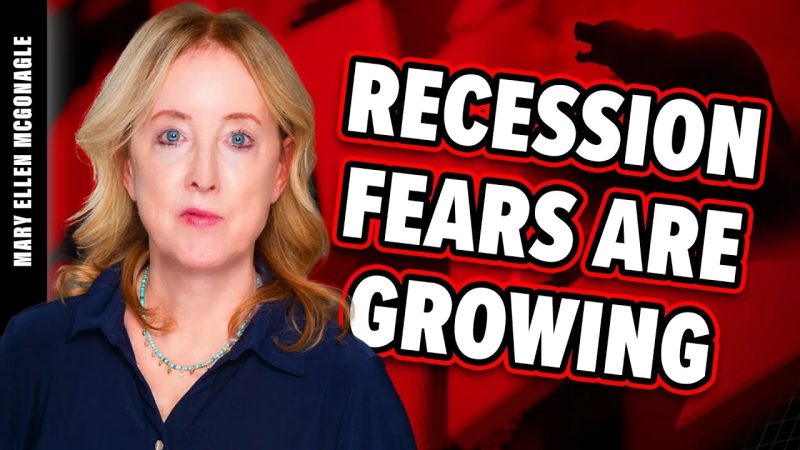The global markets are currently experiencing a downward spiral as recession fears intensify. This turbulent situation has been exacerbated by various economic and geopolitical factors, sending shockwaves throughout the financial landscape.
One of the key drivers behind the market nosedive is the ongoing trade tensions between major economies such as the United States and China. The escalating trade war has created uncertainty and instability in the global economy, leading to a lack of confidence among investors. The tit-for-tat tariff impositions have disrupted supply chains, increased production costs, and dampened consumer spending, further straining the economic outlook.
Furthermore, the specter of a potential economic slowdown has been looming large, with key indicators pointing towards an impending recession. The inversion of the yield curve, a reliable harbinger of economic downturns, has set off alarm bells among investors and policymakers alike. This phenomenon, where short-term interest rates exceed long-term rates, has historically preceded economic contractions, fueling apprehensions of an imminent recession.
Central banks around the world are grappling with the challenging task of maintaining economic stability amidst mounting uncertainty. The Federal Reserve, in a bid to cushion the economy from headwinds, has taken a dovish stance by cutting interest rates. However, the efficacy of monetary policy tools in mitigating the impact of a potential recession remains uncertain, given the limited scope for further rate cuts.
The market turbulence has also been exacerbated by geopolitical tensions and uncertainties that have clouded the global economic outlook. The looming Brexit deadline, unresolved trade disputes, and geopolitical hotspots have added another layer of complexity to an already fragile economic environment. These geopolitical uncertainties have heightened risk aversion among investors, leading to heightened volatility and selloffs across various asset classes.
Amidst the prevailing market gloom, investors are advised to exercise caution and adopt a defensive investment strategy. Diversification, risk management, and maintaining a long-term perspective are crucial in weathering the storm and preserving wealth in turbulent times. It is imperative for investors to stay informed, remain vigilant, and adapt their investment strategies to navigate the choppy waters of the current market scenario.
In conclusion, the current market nosedive amid recession fears underscores the fragility of the global economic landscape and the importance of prudent risk management. As uncertainties persist and economic indicators flash warning signs, investors must remain vigilant and prepared for potential challenges ahead. By staying informed, adopting a diversified approach, and maintaining a disciplined investment strategy, investors can navigate through turbulent times and emerge stronger on the other side.


























